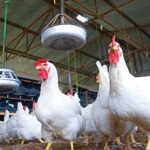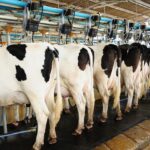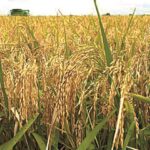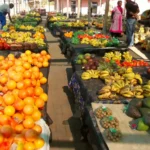1.0 Background
1.1 The Federal Government of Nigeria attempted in 2015 to put in place a policy to regulate agro-industrialization in the country through the enactment of an enabling policy for the Staple Crop Processing Zones (SCPZ) Programme. Unfortunately, under that administration, the policy was unable to get the blessing of the Federal Executive Council (FEC) and suffered a set-back for legislative passage.
1.2 The primary goal of the SCPZ policy document was to provide a roadmap for attracting and channeling efforts into the establishment and operation of SCPZs, as special, food focused economic zones, across Nigeria, including guidelines on the identification, development, management and operation of an SCPZ site and on supporting and promoting production activities in areas around an SCPZ, pending the passage of the SCPZ Law. The idea was to design the policy document to enable seamless implementation of the SCPZ Law when passed.
1.3 Specifically, the National Policy was to provide clear guidelines for:
a) Facilitating an enabling environment with relevant incentives to attract private sector investment into value-addition activities in major food production clusters, designated as SCPZs.
b) Facilitating the establishment of agro-processing industries in the SCPZs.
c) Ensuring the production and supply of adequate feedstock for processors locating within the SCPZs.
d) Sustainable management of SCPZs and the strengthening of SCPZs through an effective institutional arrangement that will guide co-ordination, monitoring and evaluation.
e) Promoting public and private sector investments in infrastructure development such as roads, power, water, ICT, land clearing, etc.
f) Securing programme funding support through public sector grants, budgetary allocations, Development Financing, Donor Agencies, financial guarantees, etc.
g) Ensuring price stabilization mechanisms to balance demand and supply gaps of available raw materials.
2.0 SAPZ Programme – Rationale for Policy Review
2.1 In 2021, the Staple Crop Processing Zones (SCPZ) programme was transformed and re-named the Special Agro-Industrial Processing Zones (SAPZ) Programme with an expanded scope for programme implementation. The Federal Government of Nigeria (FGN) secured a facility from the African Development Bank (AfDB), International Fund for Agricultural Development (IFAD) and the Islamic Development Bank (IsDB) to implement the Special Agro-Industrial Processing Zones (SAPZ) Programme in partnership with the State Governments in seven (7) participating states of Imo, Kaduna, Kano, Cross River, Kwara, Oyo and Ogun as well as the Federal Capital Territory (FCT) in the first phase of program implementation.
2.2 The SAPZ programme is a government-enabled but private sector led SAPZs investment program of the Federal Government of Nigeria. The Federal Ministry of Agriculture and Food Security (FMAFS) as the Executing Agency is working in collaboration with relevant stakeholders and partners to develop agro-processing clusters in areas of high agricultural production across the country. This is to rapidly develop modern agro-processing capacities to serve the vast and growing local markets, create sustainable market for farmers and reduce post-harvest losses of local agricultural produce and, thereby create wealth for farmers, promote import substitution and create sustainable agriculture-related jobs.
2.3 This clustering approach is to help address investment challenges in the development of agro-processing enclaves across Nigeria, including poor access to quality infrastructure, inadequate feedstock supplies and other challenges confronting agro-processing environment. SAPZs, therefore, will be developed with requisite infrastructure for agro processing environment which will help reduce cost absorptions and engender competitiveness in agro-industrial production that is critical to further unlocking the potentials of Nigeria’s agriculture to create ready markets and wealth for farming communities and reduce rural poverty.
2.4 The SAPZ is made up of two building blocks which include the Agricultural Transformation Centres (ATCs), which are, community-based rural institution within the host community, supported with provision of quality productivity boosters for the production of feedstock and the Aggregation Centre (AC) for primary storage; and the Agro-Industrial Hub (AIH) equipped with enabling economic infrastructure to create modern agro-processing environment where secondary value addition will take place. The Agro-Industrial Processing Hub (AIH) will draw its processing feedstock from the ATCs where activities of the production clusters and Aggregation Centres are being coordinated.
Kindly download the below link for more details please






Recent Comments